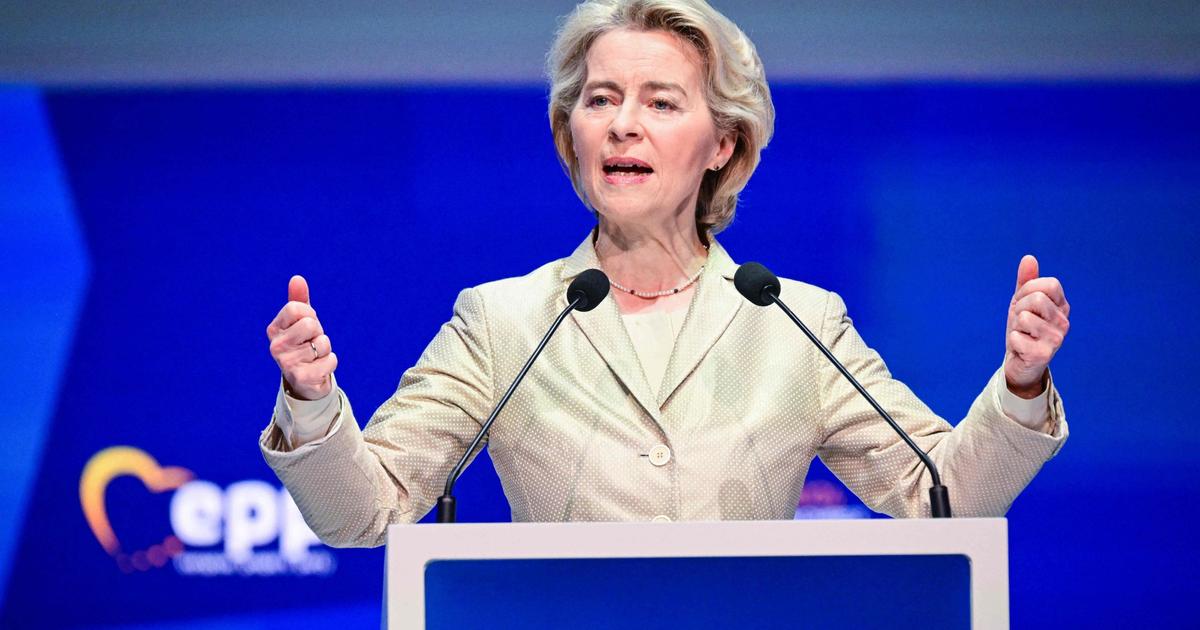The covid-19 pandemic sometimes gives the impression of being the story of an eternal return. It is as if every time the virus seems defeated, one has to start over, as if the so-called new normal were a mirage that moves away from the horizon as soon as it seems within reach. This is what has happened in recent weeks with something that did not enter the calculations of many citizens and politicians: the irruption in Europe of the delta variant of the virus, more contagious than previous variants. With it, the idea that these months would be more like the summer of 2019, when no one had heard of the SARS-Cov-2 virus, has exploded into the air than that of 2020, when Europeans moved through their countries and the continent still prudent, but hoping for the next end of the pandemic.
The idea that you are going back to the beginning is imprecise, because, with billions of people vaccinated in the world and hundreds of millions in Europe, everything has changed and the post-covid-19 world is closer than ever.
"It does not seem to me that it is a return to the starting box!", Reassures epidemiologist Antoine Flahault, director of the Institute of Global Health at the University of Geneva.
"Vaccinated people will be able to live a more or less normal summer," he confides.
More information
One in six Spaniards is already living under curfew again
France will require the covid certificate to enter bars and travel by train and plane
So far, it has not. After two months, between May and July, in which the countries of the European Union began to remove, each at its own pace, the restrictions; after a spring in which the gears of the economy had been turned at full speed; after weeks of collective recreation in which millions of citizens began to remove their masks as an act of liberation ... After all this, today cases are skyrocketing: a month ago there were some 38,000 new daily infections across the continent (including Russia, the worst hit country, and the UK); now there are more than 130,000, according to data from Reuters. And the restrictions return.
As has happened since the beginning of this crisis, a year and a half ago, European countries and their regions responded in scattered order to the new wave. In Catalonia, Cantabria or in Portugal curfews are imposed again. Holland, like other places, closes the discotheques again, whose opening had become a symbol of regained freedom. The authorities have reintroduced the obligation to wear a mask outdoors in areas of France especially affected by the variant, such as the department or province of the Eastern Pyrenees, bordering Catalonia.
"The virus is alive, so it adapts, it seeks survival strategies in its own way", states François Heisbourg, advisor of the International Institute for Strategic Studies laboratory of ideas.
Europeans are also looking for their strategy, and cannot find it.
"The EU has limited competences in health policy", Heisbourg recalls, "this is the case and probably will not change quickly, and even less where health policy is regional and not national."
"I do not know if there is an answer to the Spanish pandemic, but I do know that there is an Andalusian, Madrid, Catalan ...".
Vaccination in France
In few countries the nationalization of the response is so evident, due to its centralist and presidential tradition, as in France. On Monday, President Emmanuel Macron dedicated the main part of a televised speech not to economic reforms, as he envisioned before the delta variant, but to measures to speed up vaccination. The first measure is the obligation to be vaccinated for health personnel. In Italy it is already applied; Chancellor Angela Merkel has rejected this route for Germany. The second measure is that without a certificate proving that its holder has been vaccinated or has tested negative for covid-19, it will not be able to enter cafes, cinemas, planes or long-distance trains.
“It was a course-setting speech, of a naval captain, not pleasant to listen to, but effective,” says Heisbourg. The epidemiologist Flahault considers that what Macron announced was, without saying so, a new general confinement from which those vaccinated would be exempt. And he adds: “The French response is original, it has not been used anywhere in the world and seeks both to increase coverage with vaccines and to confine them, since only people with a very low risk of transmission, already vaccinated, will have the right to go to the places where there is a high contamination ”. Other countries have opted for pedagogy or, like Greece, for a check to young people who get vaccinated to spend on cultural activities and on summer vacations. The French method is different: force with subtlety; or, as Flahault puts it, confine without admitting it."It takes a vaccination rate of more than 90% to hope to block the spread of the virus," warns Flahault. Now in the EU about half of the population is vaccinated; there is still a long way to go.
Demonstration against vaccines in Paris, on Saturday.YOAN VALAT / EFE
After Macron's speech there have been protests against - 18,000 people on Saturday in Paris, according to the Interior Ministry;
96,000 in dozens of demonstrations in the rest of France — but the effect of the appeal was immediate and massive.
In the next three days, 2.6 million French people made an appointment on the popular Doctolib website.
A record 879,597 doses were administered on Friday.
One of them was for Clément Foulon, 24 years old.
"I get vaccinated to go on vacation abroad and to the restaurant with my girlfriend," he said next to the vaccination center in front of the Paris City Council.
"I was not very favorable to getting vaccinated, I wanted to wait a bit."
After listening to Macron, he changed his mind.
"I had no other choice," he admitted.
Europeans face several dilemmas. Reintroduce restrictions, as is being done in Portugal and Spain, or abolish them as England will do on Monday? To incite to be vaccinated with the implicit threat of not being able to frequent public places, as in France, or by means of persuasion, as in Germany?
"Everyone should be encouraged to get vaccinated, it is the only way out of the pandemic, but [the covid certificate] is not the right tool," says Luiza Bialasiewicz, professor of European governance at the University of Amsterdam. Bialasiewicz warns of the danger posed not only by requiring a vaccination certificate or a negative test to cross the borders between EU members, but also within these same countries and even in a neighborhood, at the entrance to the cinema or cafe. "Who will control these new borders, those of the restaurants?" "How to guarantee that whoever controls will not discriminate against certain people, or that they will not verify documents in a random way or because they do not like your face?"
That the certificate has been converted into a passport can be verified on the trains that cross daily between Spain and France. The scene occurred in a high-speed car on July 2. The train had just entered Perpignan, in the Eastern Pyrenees, the first French station. The French policemen verified that the travelers carried the certificate with the test or the vaccination. Only a woman with a hijab and several men of non-European origin did not have it. An agent told them that they should pay a fine of 135 euros and they had to get off in Perpignan.









/cloudfront-eu-central-1.images.arcpublishing.com/prisa/OMA4UFCHWBCAJBF6ZSPZWE4ARQ.jpg)